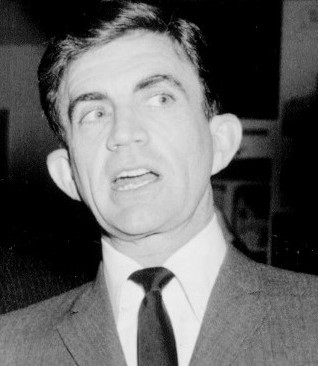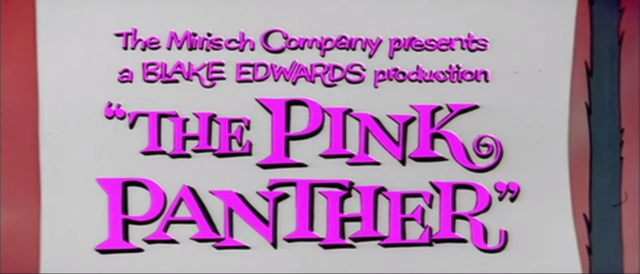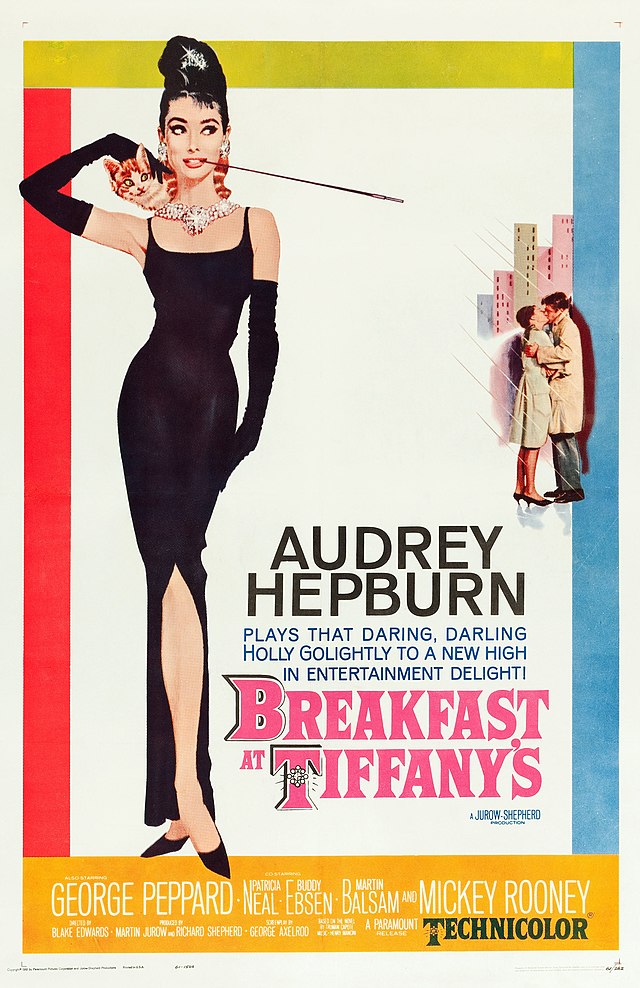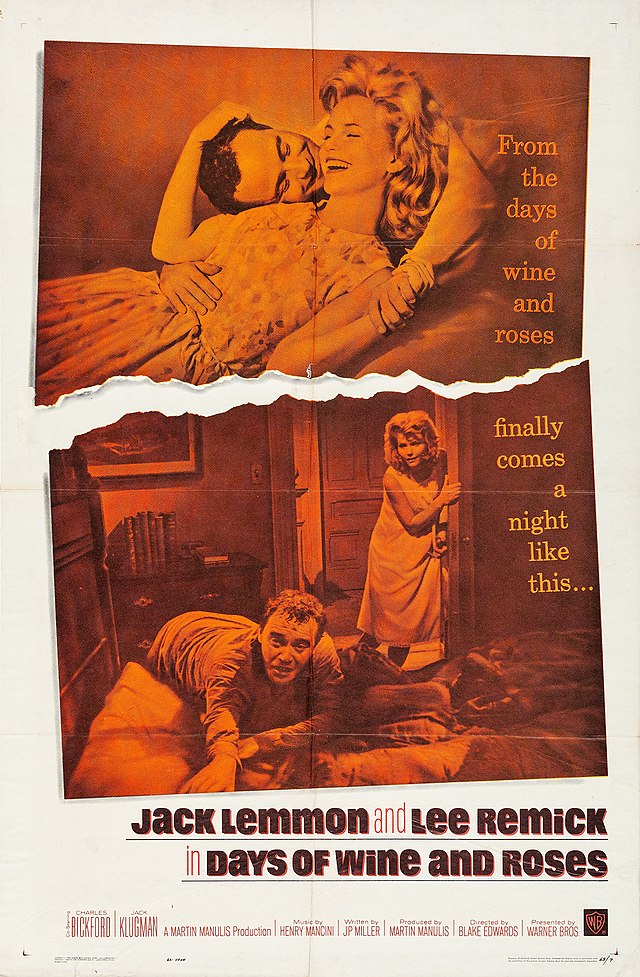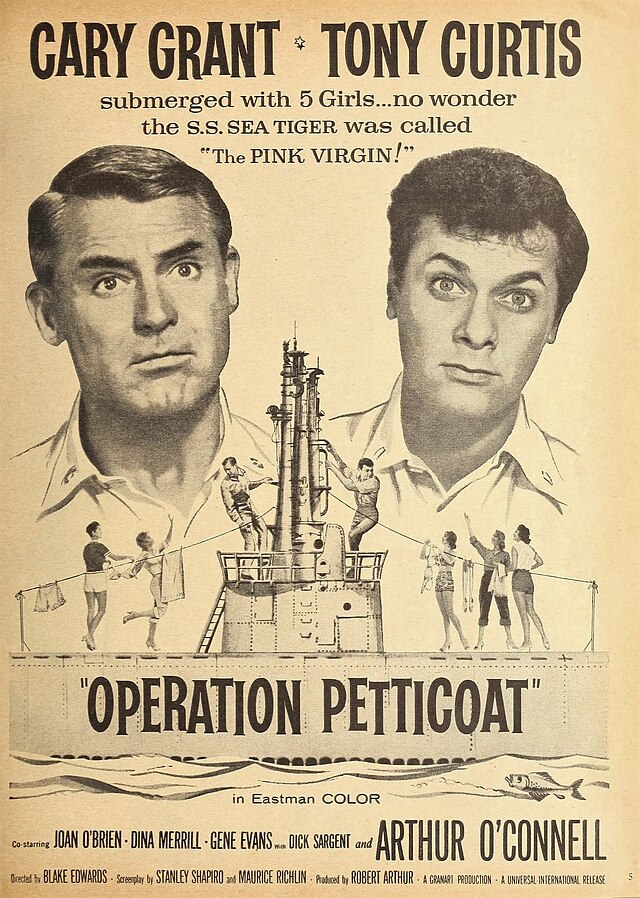Blake Edwards
back| Full Name | William Blake |
| Born | July 26, 1922 |
| Birthplace | Tulsa, Oklahoma, USA |
| Died | December 15, 2010 |
| Buried | Westwood Village Memorial Park Cemetery, Los Angeles, California, USA |
| Married to | Patricia Walker (m. 1953–1967, divorced) - Julie Andrews (m. 1969–2010, until his death) |
| Children | With Patricia Walker: Jennifer Edwards (daughter), Geoffrey Edwards (son) - With Julie Andrews: Adopted two daughters, Amy Edwards and Joanna Edwards |
| Notable films | Breakfast at Tiffany's (1961) - The Pink Panther (1963) - Days of Wine and Roses (1962) - Victor/Victoria (1982) - 10 (1979) - Operation Petticoat (1959) - The Great Race (1965) - The Party (1968) |
Blake Edwards
Master of Sophisticated Slapstick
Blake Edwards was an iconic American film director, screenwriter, and producer. Known for his versatile filmmaking, Edwards had a career spanning several decades, starting in the 1940s with screenwriting and radio shows.
He made his directorial debut in the 1950s and gained significant attention with "Breakfast at Tiffany's" in 1961. Edwards' films often combined slapstick comedy with sophisticated humor, as seen in his beloved "The Pink Panther" series. His partnership with actor Peter Sellers on these films became legendary, though it was also marked by tension.
Related
Blake Edwards (1922 – 2010)
Biography and Movie Career:
Blake Edwards was born William Blake Crump on July 26, 1922, in Tulsa, Oklahoma. His early life was marked by a deep connection to Hollywood, which would later define his career. His stepfather, Jack McEdward, was a film production manager, and it was from him that Blake took the surname Edwards. Growing up in Los Angeles, Edwards was naturally drawn to the entertainment industry. His early experiences as an actor and scriptwriter during the 1940s helped him develop a strong understanding of the industry, laying the groundwork for his future successes.
Beginnings in Hollywood
Edwards began his career in Hollywood as an actor, appearing in several films during the 1940s. However, it was soon apparent that his real talent lay behind the camera. He transitioned to screenwriting and then to directing. His first major directorial work was for the television series "Peter Gunn" (1958–1961), which he also co-created. The series, with its jazzy score by Henry Mancini, became a cultural touchstone and marked the beginning of a fruitful collaboration between Edwards and Mancini.
Breakthrough with "Breakfast at Tiffany's"
Blake Edwards' breakthrough came with the 1961 classic "Breakfast at Tiffany's," based on Truman Capote's novella. The film, starring Audrey Hepburn as the iconic Holly Golightly, became an instant classic. It not only solidified Hepburn's status as a fashion icon but also established Edwards as a director capable of blending romance, humor, and drama seamlessly. The film's success brought Edwards significant acclaim and set the stage for his prolific career in the 1960s and beyond.
The Pink Panther Series and Comedy Mastery
In 1963, Edwards directed "The Pink Panther," a comedy about a bumbling French detective, Inspector Jacques Clouseau, played by Peter Sellers. The film was a massive success, leading to a series of sequels that became a defining part of Edwards' career. "The Pink Panther" series was notable for its slapstick humor, intricate plotting, and the unforgettable musical score by Henry Mancini. Sellers' portrayal of Clouseau became legendary, and the series established Edwards as one of the foremost comedy directors of his time.
"A Shot in the Dark" (1964), another film in the Pink Panther series, further solidified Edwards' reputation for creating complex, farcical comedies. The collaboration between Edwards and Sellers, while often tumultuous, was incredibly productive and led to some of the most memorable moments in comedic cinema.
Exploring Serious Themes
Despite his reputation for comedy, Edwards was not confined to one genre. He demonstrated his versatility with films like "Days of Wine and Roses" (1962), a stark drama about alcoholism starring Jack Lemmon and Lee Remick. The film was a critical success and showcased Edwards' ability to handle serious subject matter with sensitivity and depth.
The 1970s and Personal Challenges
The 1970s were a period of both professional success and personal challenges for Blake Edwards. He directed the hit film "10" (1979), which starred Dudley Moore and introduced Bo Derek as a symbol of beauty in popular culture. The film was a major box office success and became one of the defining comedies of the decade.
However, Edwards also struggled with his personal life during this period. His marriage to actress Patricia Walker ended in divorce in 1967, and he faced professional setbacks, including several projects that were either canceled or underperformed at the box office. Despite these challenges, Edwards continued to work prolifically, often exploring themes of frustration and disillusionment in Hollywood, as seen in "S.O.B." (1981), a biting satire on the film industry.
Marriage to Julie Andrews
In 1969, Blake Edwards married British actress and singer Julie Andrews, who would become his muse and partner in many of his most successful films. The marriage was a turning point in both their lives. Together, they adopted two children, Amy and Joanna, and blended their families with Edwards’ children from his first marriage, Jennifer and Geoffrey.
Their professional collaboration was also fruitful. Andrews starred in several of Edwards' films, including "Darling Lili" (1970), "Victor/Victoria" (1982), and "That's Life!" (1986). "Victor/Victoria," in particular, was a significant success, earning Andrews an Academy Award nomination and further cementing Edwards' reputation as a director who could balance humor with social commentary.
Wedding of Blake Edwards and Julie Andrews:
The wedding of Blake Edwards and Julie Andrews is a story of Hollywood romance, blending the lives of two iconic figures in the entertainment industry.
How They Met:
Blake Edwards and Julie Andrews first met in the late 1960s. Their first encounter was somewhat serendipitous and humorous, with both later recalling that they initially noticed each other while passing in their cars on Sunset Boulevard. Edwards reportedly joked that they had a "car accident" when they first "met." At the time, both were well-established in their respective careers—Andrews as a beloved star of musicals like Mary Poppins and The Sound of Music, and Edwards as a successful director known for films like Breakfast at Tiffany's and The Pink Panther series.
The Wedding:
Blake Edwards and Julie Andrews were married on November 12, 1969. The wedding was a private and intimate affair, in keeping with the couple's desire to keep their personal lives out of the spotlight as much as possible. The ceremony took place in a small setting in London, surrounded by close family and friends. The wedding was a blend of elegance and simplicity, reflecting the personalities of both Edwards and Andrews.
Their Life Together:
Their marriage was not just a union of two people, but also a professional partnership that spanned several decades. Edwards and Andrews collaborated on numerous films, including Darling Lili (1970), S.O.B. (1981), Victor/Victoria (1982), and That's Life! (1986). Edwards often crafted roles that showcased Andrews' talents, and together they created some of the most memorable films of the time.
Family:
The couple blended their families, with Edwards bringing two children from his previous marriage, Jennifer and Geoffrey, and Andrews bringing her daughter, Emma, from her previous marriage to set designer Tony Walton. Together, Edwards and Andrews adopted two daughters, Amy and Joanna.
Enduring Partnership:
Their marriage was one of the most enduring in Hollywood, lasting over 40 years until Edwards' death in 2010. Andrews often spoke of their relationship with great affection and respect, noting that their partnership was based on mutual understanding, shared humor, and deep love. Despite the challenges of life in the public eye and the demands of their respective careers, they maintained a strong, loving bond that was admired by many.
Later Career and Legacy
Blake Edwards continued to work into the late 1980s and 1990s, though his output slowed down. He directed "Blind Date" (1987) and "Skin Deep" (1989), both of which enjoyed moderate success. In 1991, he received an honorary Oscar for his "extraordinary body of work," acknowledging his contribution to the film industry over four decades.
Edwards' films are marked by their exploration of the human condition, often through the lens of comedy. His ability to blend humor with deeper social themes made his work distinctive and enduring. Even in his later years, he remained a vital figure in Hollywood, known for his sharp wit and willingness to tackle difficult subjects.
Final Years and Death
Blake Edwards' later years were spent mostly out of the public eye. He remained married to Julie Andrews, and they lived together in Los Angeles. Despite declining health, Edwards continued to express his creative spirit, even venturing into writing and producing stage plays.
Blake Edwards passed away on December 15, 2010, at the age of 88 from complications of pneumonia. He was buried at Westwood Village Memorial Park Cemetery in Los Angeles, California. His death marked the end of an era for Hollywood comedy, but his films continue to be celebrated for their wit, charm, and enduring appeal.
Blake Edwards left an indelible mark on Hollywood. His films continue to influence generations of filmmakers and entertain audiences around the world. Whether through the elegant sophistication of "Breakfast at Tiffany's," the slapstick genius of "The Pink Panther," or the biting satire of "S.O.B.," Edwards' work remains a testament to his versatility, creativity, and mastery of the cinematic form.
Jim Carrey presenting an Honorary Oscar to Blake Edwards:
Quotes from Blake Edwards:
· On Comedy:
"The finest line a man will ever walk is just before he sits in judgment on someone else."
· On Filmmaking:
"I think the sweeter the comedy, the more one can make it bitter. And conversely, the more bitter it is, the sweeter it can be."
· On His Approach to Film:
"I'm someone who believes in finding the right people and letting them do their job. You guide them and support them, but ultimately, they need to bring their own ideas and creativity to the table."
· On Creativity:
"Nothing’s funny when you’re feeling down. Humor is very uplifting and it’s a great gift to be able to make people laugh. But it’s only part of the whole picture; it’s not the whole picture."
· On Success and Failure:
"Success breeds success. I've been offered a lot more money and a lot more opportunities than I've had the courage or energy to take."
· On Hollywood:
"Hollywood is like an empty wastebasket. It's full of trash."
· On His Films:
"I think all my pictures are slightly autobiographical. But I’m not going to tell you how."
· On His Career:
"I've had a good career. I've worked with some wonderful people, made some movies that I'm proud of, and some that I'd rather forget."
Awards and Recognition:
Academy Awards (Oscars)
- Honorary Academy Award (2004)
- In recognition of his "extraordinary body of work," particularly his contributions to the art of comedy.
Golden Globe Awards
- Best Director – Motion Picture
- Victor/Victoria (1982)
- Best Motion Picture – Musical or Comedy
- Breakfast at Tiffany's (1961)
- The Pink Panther (1963)
- The Great Race (1965)
- Victor/Victoria (1982)
- That's Life! (1986)
- Best Screenplay – Motion Picture
- The Pink Panther (1963)
- Victor/Victoria (1982)
- Golden Globe Cecil B. DeMille Award (1988)
- For outstanding contributions to the world of entertainment.
Writers Guild of America Awards (WGA)
- Best Written Comedy
- The Pink Panther (1964)
- Best Written Musical
- Victor/Victoria (1982)
- Laurel Award for Screenwriting Achievement (1993)
- In recognition of his lifetime contributions to the art of screenwriting.
Directors Guild of America Awards (DGA)
- Outstanding Directorial Achievement in Motion Pictures
- Breakfast at Tiffany's (1961)
- Victor/Victoria (1982)
British Academy Film Awards (BAFTA)
- Best British Screenplay
- The Pink Panther (1964)
- Best Film
- Victor/Victoria (1982)
Cannes Film Festival
- Palme d'Or
- The Days of Wine and Roses (1962)
Primetime Emmy Awards
- Outstanding Writing Achievement in Comedy
- The Pink Panther Show (1969–1976)
Laurel Awards
- Top Producer/Director
- The Pink Panther (1964)
Other Honors and Recognitions
- Hollywood Walk of Fame (1991)
Blake Edwards was honored with a star on the Hollywood Walk of Fame for his contributions to the motion picture industry.
- American Comedy Awards
Lifetime Achievement Award in Comedy (1991)
- In recognition of his enduring contributions to comedy in film.
- San Sebastián International Film Festival
Lifetime Achievement Award (1995)
- For his body of work and impact on cinema.
Retrospectives and Honorary Tributes
- Museum of Modern Art (MoMA) Retrospective (2002)
A retrospective of Blake Edwards’ work was held at MoMA, celebrating his career and influence in film.
- American Film Institute (AFI)
Edwards was often celebrated in AFI tributes and retrospectives, recognizing his impact on American cinema.
Masterful Visual Directing Style:
Blake Edwards was a highly versatile and influential filmmaker whose directing style evolved over his decades-long career. His work is characterized by a unique blend of visual comedy, sophisticated humor, genre experimentation, and a deep understanding of character and narrative structure.
Mastery of Visual Comedy and Slapstick
One of the hallmarks of Edwards' style is his mastery of visual comedy and slapstick humor. He had a keen sense of timing and understood how to craft elaborate, often chaotic sequences that would result in maximum comedic impact. This is most evident in the Pink Panther series, where Inspector Clouseau’s clumsiness leads to a series of increasingly absurd situations. Edwards was influenced by classic silent comedians like Charlie Chaplin and Buster Keaton, but he brought a modern sensibility to these sequences, combining physical comedy with clever visual gags and wordplay.
Sophistication and Wit
Edwards was equally comfortable with sophisticated, witty dialogue and humor. Films like Breakfast at Tiffany’s (1961) and Victor/Victoria (1982) demonstrate his ability to balance charm, elegance, and humor. His characters often find themselves in socially awkward situations, and Edwards skillfully used dialogue to explore themes of identity, gender roles, and societal expectations. His films frequently delve into the nuances of relationships, using humor as a means to explore the complexities of human interactions.
Genre Fluidity
Edwards was a director who refused to be pigeonholed into a single genre. Over the course of his career, he worked across a wide range of genres including comedy, drama, thriller, musical, and even Westerns. This fluidity allowed him to bring a fresh perspective to each project. For example, Days of Wine and Roses (1962) is a stark departure from his usual comedies, dealing with the serious subject of alcoholism with a raw emotional intensity. Meanwhile, The Great Race (1965) blends adventure and comedy in an epic, lighthearted fashion.
Satire and Critique of Hollywood
Blake Edwards often used his films to satirize and critique Hollywood and the entertainment industry. This is most evident in films like S.O.B. (1981), which offers a biting critique of the film industry’s cynicism and hypocrisy. Edwards’ insider knowledge of Hollywood allowed him to craft sharp, insightful commentaries on the industry’s darker sides, blending humor with pointed observations about fame, success, and the often destructive nature of show business.
Character-Driven Stories
Edwards had a deep understanding of character development, and this was central to his directing style. His films often feature characters who are struggling with personal crises, identity issues, or societal pressures. Whether it’s the existential malaise of the middle-aged man in 10 (1979) or the cross-dressing singer in Victor/Victoria (1982), Edwards’ characters are always at the heart of the narrative. His ability to elicit strong performances from his actors, combined with his focus on character-driven stories, allowed his films to resonate emotionally with audiences.
Collaboration with Henry Mancini
A crucial element of Edwards' style was his long-term collaboration with composer Henry Mancini. The music in Edwards’ films is almost a character in itself, often setting the tone and enhancing the emotional and comedic impact of the scenes. The iconic theme from The Pink Panther series is a prime example of how Mancini’s music, combined with Edwards’ direction, created an unforgettable cinematic experience. Mancini’s scores provided a perfect complement to Edwards’ visual style, adding an additional layer of sophistication and mood to his films.
Use of Long Takes and Elaborate Sequences
Edwards often employed long takes and elaborately choreographed sequences in his films. This approach not only highlighted the physical comedy in his films but also demonstrated his confidence in the actors’ abilities and the strength of the material. By allowing scenes to play out in real-time, Edwards could build tension and anticipation, leading to more impactful comedic or dramatic payoffs. This technique is particularly effective in the Pink Panther series, where the timing and precision of the physical comedy are crucial to the humor.
Exploration of Gender and Identity
Many of Edwards’ films explore themes of gender and identity, often through the lens of comedy. Victor/Victoria is a prime example, where the protagonist navigates a world of mistaken identity, gender roles, and societal norms. Edwards used humor to challenge traditional views of gender and sexuality, presenting these themes in a way that was both entertaining and thought-provoking. His work often questioned the roles imposed by society and encouraged audiences to think critically about identity and acceptance.
Darker Undertones
Even in his comedies, Edwards often infused darker, more serious undertones. This duality is evident in films like The Party (1968), where the humor is tinged with a sense of alienation and social awkwardness. Similarly, S.O.B. combines farce with a scathing critique of Hollywood’s moral bankruptcy. Edwards’ ability to blend light and dark elements in his films gave his work a depth and complexity that resonated with audiences beyond just the comedic surface.
Attention to Detail and Production Design
Edwards paid meticulous attention to production design, ensuring that the visual aspects of his films were as carefully crafted as the performances and scripts. Whether it was the glamorous world of New York City in Breakfast at Tiffany’s or the chaotic set pieces in The Pink Panther, Edwards worked closely with his production teams to create immersive, visually striking environments that enhanced the storytelling.
Blake Edwards’ directing style is a rich tapestry of visual and verbal humor, character-driven narratives, and genre-defying creativity. His films are a blend of highbrow and lowbrow comedy, sophisticated wit, and biting satire, often underpinned by deeper themes of identity, societal critique, and human frailty. Edwards' work remains influential, and his ability to navigate different genres while maintaining a distinct voice has cemented his legacy as one of Hollywood’s most versatile and enduring directors.
List of Movies Directed by Blake Edwards:
- "Bring Your Smile Along" (1955)
A lighthearted musical comedy about a songwriter and his friends who move to New York City to pursue their dreams in show business.
- "He Laughed Last" (1956)
A comedy about a nightclub singer who inherits a gambling racket from her gangster boyfriend, leading to a series of comedic escapades.
- "Mister Cory" (1957)
A drama about a young man from a poor background who becomes a high-rolling gambler in Chicago, with ambitions to rise in society.
- "This Happy Feeling" (1958)
A romantic comedy about a young actress who finds herself caught between an aging Broadway star and his ambitious young understudy.
- "The Perfect Furlough" (1958)
A military comedy where a soldier wins a perfect furlough—a romantic vacation with a movie star—leading to comedic complications.
- "Operation Petticoat" (1959)
A comedy set during World War II about a submarine crew who must cope with the presence of female nurses on board while trying to repair their damaged vessel.
- "High Time" (1960)
A comedy about a wealthy, middle-aged man who decides to enroll in college, where he experiences the challenges and joys of campus life.
- "Breakfast at Tiffany's" (1961)
A romantic comedy-drama about a young socialite, Holly Golightly, who is torn between her carefree lifestyle and the possibility of real love.
- "Experiment in Terror" (1962)
A thriller about a bank teller who is terrorized by a mysterious criminal who forces her to steal from her own bank.
- "Days of Wine and Roses" (1962)
A powerful drama about a young couple whose lives spiral out of control due to alcoholism, highlighting the destructive nature of addiction.
- "The Pink Panther" (1963)
A comedy about the bumbling French detective Inspector Jacques Clouseau, who tries to catch a jewel thief while protecting a valuable diamond, the Pink Panther.
- "A Shot in the Dark" (1964)
A follow-up to "The Pink Panther," this film further explores Inspector Clouseau's comedic misadventures as he investigates a murder in a country estate.
- "The Great Race" (1965)
A comedy-adventure about a race around the world between a heroic American daredevil, his rival, and a scheming villain, filled with slapstick humor and elaborate stunts.
- "What Did You Do in the War, Daddy?" (1966)
A war comedy about American soldiers in Italy who are ordered to take over a small town, only to find the residents are ready to surrender—if the soldiers agree to a festival.
- "Gunn" (1967)
A crime thriller continuing the story of private detective Peter Gunn, as he uncovers a murder plot in the seedy underworld.
- "The Party" (1968)
A comedy about an Indian actor who is accidentally invited to a lavish Hollywood party, where his clumsiness leads to a series of increasingly chaotic situations.
- "Darling Lili" (1970)
A musical comedy-drama set during World War I, starring Julie Andrews as a British singer and spy who falls in love with an American pilot.
- "Wild Rovers" (1971)
A Western about two cowboys who decide to rob a bank to escape their humdrum lives, leading to a tense and tragic pursuit.
- "The Carey Treatment" (1972)
A mystery thriller about a doctor who investigates the suspicious death of a young woman following an illegal abortion, uncovering corruption and secrets.
- "The Tamarind Seed" (1974)
A romantic thriller about a British civil servant and a Russian diplomat who become involved in a dangerous affair during the Cold War.
- "The Return of the Pink Panther" (1975)
Inspector Clouseau returns in this comedy as he attempts to track down the stolen Pink Panther diamond once again, leading to more hilarious blunders.
- "The Pink Panther Strikes Again" (1976)
Clouseau's former boss, now insane, plots to destroy the world unless Clouseau is eliminated, resulting in more comic mayhem.
- "Revenge of the Pink Panther" (1978)
In this comedy, Clouseau fakes his own death to investigate a drug lord, leading to more slapstick chaos.
- "10" (1979)
A romantic comedy about a middle-aged man who becomes obsessed with a beautiful young woman, leading him to reevaluate his life and relationships.
- "S.O.B." (1981)
A satirical comedy about a Hollywood producer who decides to turn his wife's wholesome image upside down by having her appear nude in a film, a biting critique of the film industry.
- "Victor/Victoria" (1982)
A musical comedy about a woman in 1930s Paris who disguises herself as a man to perform as a female impersonator, leading to romantic and comedic complications.
- "Trail of the Pink Panther" (1982)
A posthumous tribute to Peter Sellers using previously unused footage from earlier films, continuing the misadventures of Inspector Clouseau.
- "Curse of the Pink Panther" (1983)
A comedy about an inept American detective hired to find the missing Clouseau, continuing the legacy of the Pink Panther series.
- "The Man Who Loved Women" (1983)
A romantic comedy about a sculptor who reflects on his numerous love affairs with women, attempting to understand his obsession with the opposite sex.
- "Micki & Maude" (1984)
A comedy about a bigamist who struggles to juggle two wives when both becomepregnant at the same time, leading to a series of humorous situations.
- "A Fine Mess" (1986)
A slapstick comedy about two friends who accidentally stumble into a race-fixing scam and try to escape the ensuing chaos.
- "That's Life!" (1986)
A comedy-drama about a wealthy architect who goes through a mid-life crisis as his 60th birthday approaches, facing his fears and insecurities.
- "Blind Date" (1987)
A romantic comedy about a man who takes a beautiful woman on a blind date, only to discover she becomes wildly unpredictable when she drinks.
- "Sunset" (1988)
A comedy-mystery about a retired cowboy actor and a real-life detective who team up to solve a Hollywood murder in the 1920s.
- "Skin Deep" (1989)
A comedy about a successful but womanizing writer whose life spirals out of control due to his numerous affairs and his struggle with alcohol.
- "Switch" (1991)
A fantasy-comedy about a womanizing executive who is killed by his ex-girlfriends and sent back to Earth as a woman to learn a lesson about empathy and love.
- "Son of the Pink Panther" (1993)
A comedy continuing the Pink Panther series, introducing Inspector Clouseau's long-lost son, who inherits his father's clumsy tendencies.
- "Victor/Victoria" (1995, TV Movie)
A television adaptation of his successful film, continuing the story of the gender-bending cabaret singer.
- "The Pink Panther (2006, Executive Producer):
A reboot of the classic franchise, starring Steve Martin as the bumbling Inspector Clouseau.

